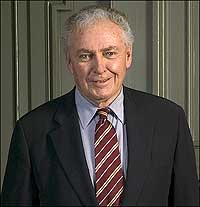Education for Citizenship
Historians often are challenged to defend the relevance of their work, the application of their knowledge to everyday life. History is an inventory of human experience, a directory of ideas and ideals, a catalogue of thought and belief on which humankind relies to understand the present and to help shape the future. To borrow a phrase from Thucydides, history is philosophy learned from examples.
How does Colonial Williamsburg contribute to developing an understanding of the idea of America? Just what is the contemporary relevance of the life and events of this colonial capital? What impact can our programs, be they here in Williamsburg or broadcast to millions around the country, have on those who will shape our nation's future?
Those are good questions.
Colonial Williamsburg teaches us about a time and place in which the idea of America was formulated, the context in which it first flourished, and its importance to the continued success of the American experiment.
For more than seventy-five years, much of what Colonial Williamsburg has presented could be described—with apologies to Thucydides—as civics learned from examples. Today, historians and educators understand the word "civics" to mean the participation of every individual in the public life of his or her community to achieve greater liberty, justice, and opportunity. Isn't that a central component of the idea of America? Isn't the commitment to such participation the most enduring and meaningful link between the eighteenth and the twenty-first century?
Williamsburg's story has a great deal to say to diverse audiences about that sort of civics, about the doctrines of democracy, and about the importance of participation. I think of it as "education for citizenship." Under any name, our objective now is to make our story as patently relevant to today as it has been since the days of Washington, Jefferson, and Henry.
Effective citizenship participation is fundamental to America's well-being. That message, so strategic and so central, is to become the unifying curriculum of all that Colonial Williamsburg does. That message will be integrated into the Historic Area and the Web site, will be included in an initiative targeting secondary schools, and made the core of orientation and introductory tours, as well as interpretive programming.
That message must and will be relevant to young Americans, new Americans, all Americans, even non-Americans. We will draft new language for that message, and we will write new messages. There will be new programs and new media designed to connect with an increasingly heterogeneous contemporary audience.
The education for citizenship initiative will require thought, imagination, planning, and resources. But no undertaking could be more consistent with Colonial Williamsburg's mission—that the future may learn from the past.
Colin G. Campbell
Chairman and President

